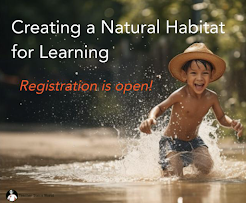Subscribe to:
Post Comments (Atom)
skip to main |
skip to sidebar

Teaching and learning from preschoolers
Teacher Tom's Course
Search Teacher Tom
Book Teacher Tom for your event
If you are interested in inviting me to speak at your conference or to otherwise work with me, please send your query to my wife and business partner:
Jennifer@TeacherTomsWorld.com.
We will make every effort to accommodate your schedule, but please keep in mind that I'm often scheduled a year or more in advance so please book early!
Stay Up To Date With Teacher Tom
To keep up to date with the latest news from Teacher Tom, sign up for our email list. We will not sell or share your information, ever. And we won't flood your inbox. To get on the list, please email Teachertomhobson@TeacherTomsWorld.com with "Email list" in the subject line. Thanks!
support teacher tom
This is my personal blog and is not a publication of the Woodland Park Cooperative Preschools. I put a lot of time and effort into it. If you'd like to support me please consider a small contribution to the cause. Thank you!
Teacher Tom's Topics
- art (487)
- blogging (65)
- circle time (166)
- community (1151)
- conflict (393)
- construction/tinkering (572)
- cooperative (211)
- cooperative nuts and bolts (5)
- death (25)
- development (369)
- dramatic play (557)
- education reform (410)
- education transformation (427)
- emotions (500)
- fairness (270)
- fine motor (211)
- gardening (41)
- Halloween (24)
- kindergarten (75)
- Language (81)
- large motor (486)
- life and death (296)
- Little World (19)
- love (282)
- media (60)
- Mister Rogers (85)
- multi-aged classroom (69)
- outdoor play (771)
- parenting (622)
- play summit (70)
- podcast (6)
- power (234)
- rules (164)
- science (653)
- sensory (268)
- songs (53)
- stories/storytelling (233)
- superheroes/princesses (114)
- tape-off (9)
- Teacher Tom's art (24)
- Teacher Tom's First Book (5)
- Teacher Tom's Second Book (3)
- teaching (1470)
- traditions/rituals (243)
- Why I Teach The Way I Do (11)
- Woodland Park (135)
About Teacher Tom
- Teacher Tom
- Seattle, Washington, United States
- I am a preschool teacher, blogger, speaker, artist and the author of Teacher Tom's First Book. After nearly 20 years as the preschool teacher at the Woodland Park Cooperative School teaching children from 2-5, I'm now working with businesses and other institutions to help make high-quality, play-based preschool education a possibility for children everywhere.
Subscribe to Teacher Tom by email
Teacher Tom's Blog List
-
-
-
-
-
-
Solstice 2023: Abandon4 months ago
-
Studio and Umbrella Project Update6 months ago
-
Miso Marinated Air Fryer Chicken Kebobs8 months ago
-
An Epilogue of Sorts1 year ago
-
P is for Pizza!2 years ago
-
-
-
-
-
Labor of Love6 years ago
-
Let the Babies Play7 years ago
-
Janet Lansbury
Blog Archive
-
▼
2021
(261)
-
▼
February
(20)
- I'll Try Not to Yuck Your Yum if You Try Not to Yu...
- The Concept of "Learning Loss" is Complete BS
- Young Children Don't Need Adults to Make Their Pla...
- If the World Disappears When I Close My Eyes
- How We Become Blind to the Chicken
- In the End the Goal is Not Literacy, It's Understa...
- A "Big, Big Poop" and Speaking the Names of the Gods
- Without Emotions Rational Thought is Impossible
- "Actual Life"
- These Aren't the Same People We Sent Home Last Spring
- The Central Challenge of Our Time
- "You Can't Play"
- That's the Real Work of Being a Parent
- Leaving Our Children Illiterate in Body and Spirit
- Always Raising One Another
- Even If We've Forgotten
- Their Play is Not Evidence That They are Fine
- It Feels Good to Do Good
- "For Your Own Good"
- Bird Brains
-
▼
February
(20)
Copyright © 2000-2023 Thomas Hobson






No comments:
Post a Comment